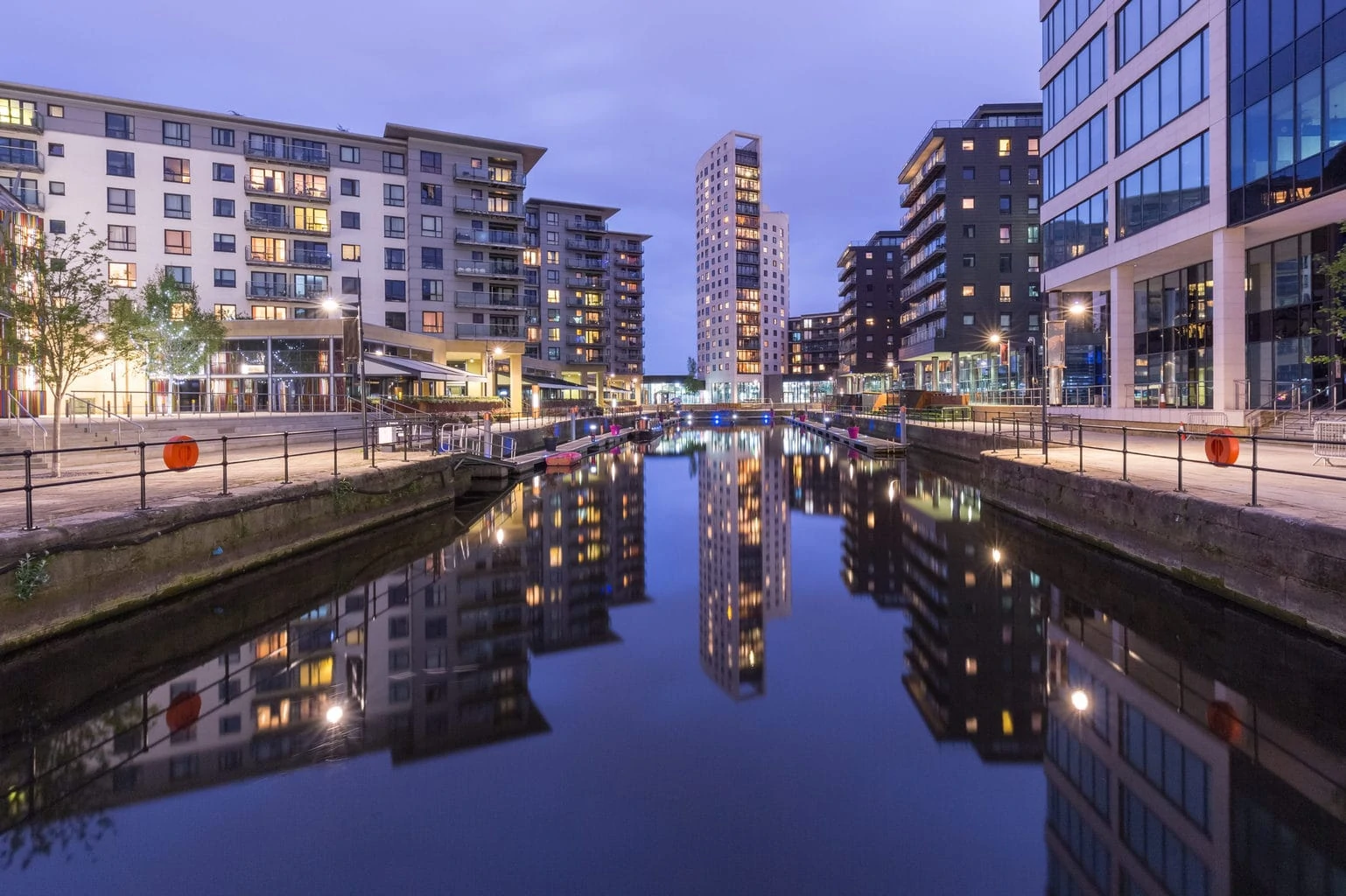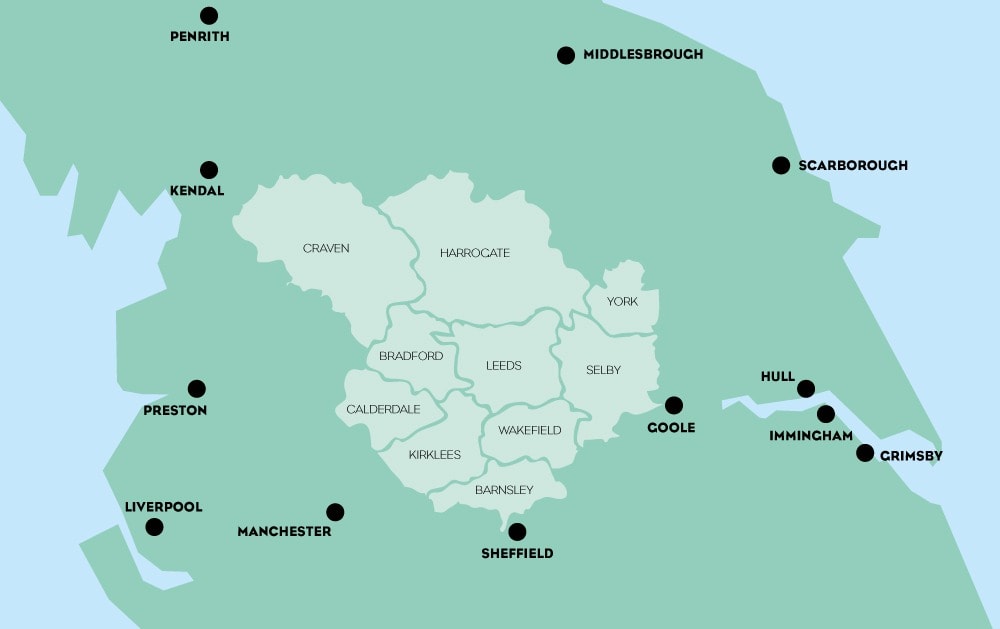As the Leeds City Region rapidly becomes Yorkshire’s media hub, a range of other businesses are also seeing the benefits of Chinese investment, writes Tom Pattinson
The Leeds City Region, which includes, amongst others, the surrounding areas of Harrogate, Bradford, Barnsley, Huddersfield, Wakefield and York has also been very active in attracting Chinese investment. The area has a strong manufacturing history and has become a major northern media hub with Channel Four choosing Leeds to become the home for its new headquarters.
A delegation from the region visited Qingdao, Hangzhou and Hong Kong at the end of last year in a bid to reinforce bilateral investment flows and identify further import and export opportunities whilst also showcasing the area’s products and services.
“Our country’s success is built on northern industry and innovation,” says Roger Marsh OBE, Chair of the Leeds City Region Enterprise Partnership (LEP) and the Northern Powerhouse 11 (NP11). “Our aim through the NP11 is to unite business and civic leaders to ensure our Northern Powerhouse competes globally. As a region, we are constantly developing our strong relationship with China and its fast-growing markets. Our long-standing links with China through our universities, the appeal of our world-class tourist destinations and our connections with Chinese business means we have very strong foundations to build on.”
The Northern Powerhouse campaign has certainly helped raise awareness of the region among Chinese investors, demonstrating that there is more to the UK than just London and Manchester. Promoting a larger region rather than just a series of comparatively small cities is an easier concept to sell, and resonates well with China.
One major investor in the region is Chinese company Hisense, who opened their Leeds office in 2012 and saw £1.5 million turnover in their first year. Since then, the Qingdao-based electronics and consumer goods company has grown; it now has over 40 staff and annual revenues of £100 million with expectations that this will double in the next 18 months. Hisense UK has won numerous awards in recent years for being among the fastest-growing companies in Yorkshire.
Chinese tech and video surveillance giant Dahua Technology also opened an office in Leeds in September last year to complement their UK base in Maidenhead. The new office will see a team of up to ten staff work to establish a permanent presence to support its local distributors, integrators and installers, as well as offering training locally and providing a local base for partner events and client demonstrations.
Chinese manufacturing and engineering firm Powerlink has been located in Selby since 2010 and is home to their only manufacturing facility outside China, and Chinese companies have also been investing in local companies too. Chinese conglomerate Fosun, which also owns Wolverhampton Wanderers, acquired a significant stake in Silver Cross in 2015.
Founded in Leeds in 1877, Yorkshire-based Silver Cross is the UK’s most iconic nursery brand, famous for supplying prams to the royal family. It’s recognised internationally for its award-winning travel systems, strollers, nursery furniture and car seats, which have helped the brand become a trusted household name. In addition, it has a heritage collection still hand-crafted in Yorkshire – the only prams still manufactured in the UK.
A spokesperson for Silver Cross said the Fosun partnership helped accelerate the company’s international growth. “The global need for high quality, reliable and desirable nursery products is continuing to grow among parents, which creates a considerable opportunity for an iconic premium brand like Silver Cross.”
“It is already the brand of choice for parents who are attracted to the quality of its products and service. Fosun brings Silver Cross its undoubted expertise, resources and competitive advantage in the Chinese market and the partnership gives Silver Cross the platform to further accelerate the company’s international expansion.”
Elsewhere, Skyworth Digital, whose headquarters are in Shenzhen, has acquired Leeds-based Caldero who develop and deliver set-top box technology, online video platforms and other services to send video into and around the home. And Pelican Engineering Group in Wakefield is the sole UK importer and distributor of Yutong buses and coaches – the largest bus and coach manufacturer in the world.
Another recent Chinese investor in the region is Chinese gaming company OPE Sports who took on sponsorship of the Huddersfield Town football team. When Huddersfield became the 49th club to join England’s football Premier League in May 2017 the team was thrust upon the global footballing stage, and suddenly drawn to the attention of four billion football fans around the world.
“This starts to attract people who want to be associated with you,” explains Sean Jarvis, Commercial Director at the club. And it seems Ope Sports were certainly interested in reaching this huge viewing audience as the Chinese company are thought to have spent £1.5 million on shirt sponsorship. Huddersfield has also attracted the attention of Chinese media company Lei Su who has also invested in the club and become their official Asian media partner.
“The Premier League was a catalyst but having met individuals they have warmed and loved what Huddersfield stand for. They have a keen interest in the club, the town and the area,” says Jarvis.
Jarvis has been pleasantly surprised in his relationship with his Chinese sponsors, especially he says, their desire for corporate social responsibility and integrating into local communities. “The Importance they place on that is very refreshing as some commercial organisations that sponsor clubs can be mercenary but these both have a desire to give something back to the community.”
When Huddersfield became the 49th club to join England’s football Premier League in May 2017 the team was thrust upon the global footballing stage, and suddenly drawn to the attention of four billion football fans around the world
The benefits to Huddersfield are more than just financial. Jarvis explains that retail sales on items like replica shirts have increased, as well as their global following, which is tracked through social media. “We’ve grown our followers on Weibo very quickly when previously we had zero exposure in China.”
It’s certainly not a one-way street either. Over the last few years, Huddersfield has been sending coaches out to teach school children in Guangdong how to play football. The link came about via a relationship with a Huddersfield company, Fired Up, who have offices and factories in China. Their local support has enabled the football club to work at a grassroots level to build relationships and, of course, to attract a young generation of fans.
“Our credibility isn’t as strong as experienced Premier League teams like Chelsea and Manchester United, what we’re trying to do is start at the grass roots – it’s the right first step for us,” says Jarvis.
The Northern Powerhouse brand continues to grow, says Jarvis, “and that has only compounded what we are trying to do.” Continuing, he says that having Huddersfield in the Premier League has put the town on the map and people know where it is. “We need Yorkshire clubs to be in the Premier League because it helps. The Northern Powerhouse puts us on the map and being in the Premier Leagues helps promote the Northern Powerhouse,” he says.
Down the road, Bradford has also been creating another cultural and economic link between the two countries. Bradford became the first city to win the title of UNESCO City of Film back in 2009 due to the rich film heritage, the vast number of film locations used, and the impact that their film festivals have. Many films and TV shows have been filmed in Bradford, as well as other Yorkshire towns, in recent years and the region is actively promoting itself as a film location, meaning that the digital and creative sector continues to grow across the area.
With 25,808 people employed in the tech, media and telecommunications industries, Leeds has more people employed in this sector than any other city outside of London. Channel Four are moving their headquarters there this year and a number of other creative media businesses have also announced their decisions to locate in the region, including UKTV, Wise Owl Films and ‘Workerbee’. This increased interest is also continuing to grow.
The wider Yorkshire region is at the forefront of film and TV production with the latest figures showing that between 2009 and 2015, Yorkshire and Humber’s film and TV industries generated an annual turnover of £424 million across 590 creative businesses; an increase of 247 percent against the UK average of 118 percent, with Gross Value Added (GVA) increasing 242 percent in comparison to a UK average of 120 percent.
The relationship between China and the region is an essential part of this growth. In 2017, Bradford actively supported Qingdao to successfully gain UNESCO City of Film Status and opened a film office in Qingdao, and now Qingdao has reciprocated by opening a film office in Bradford. This will work to develop various co-productions between British and Chinese filmmakers and open up a range of incentives to accelerate film development and Sino-British cultural exchange.
Read more about China’s investment into Manchester
Read more about China’s investment into the North West
Read more about China’s investment into the North East




